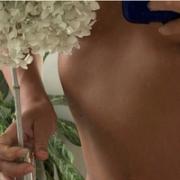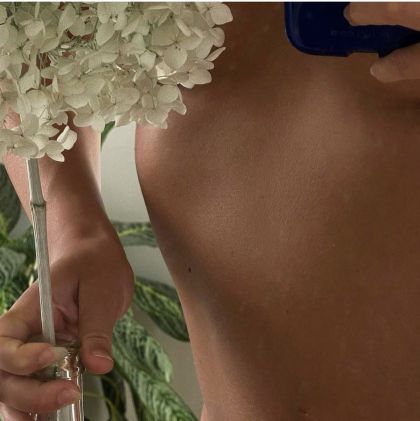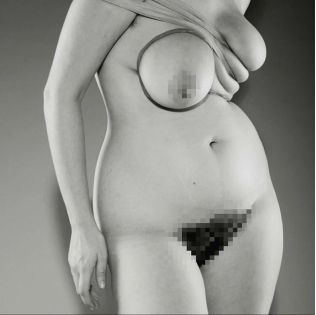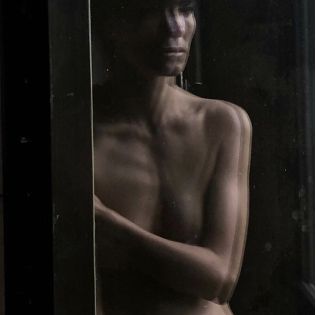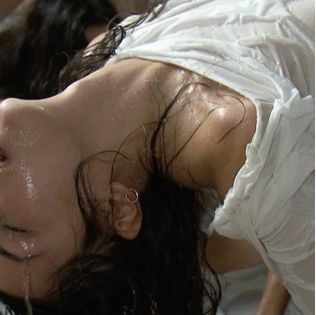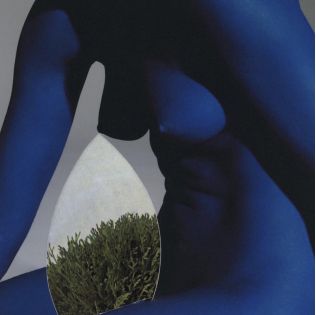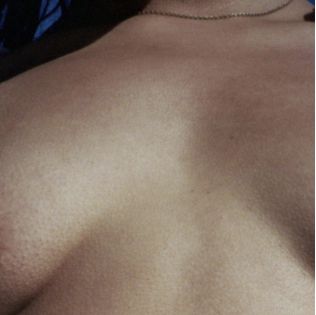Wilde At Heart
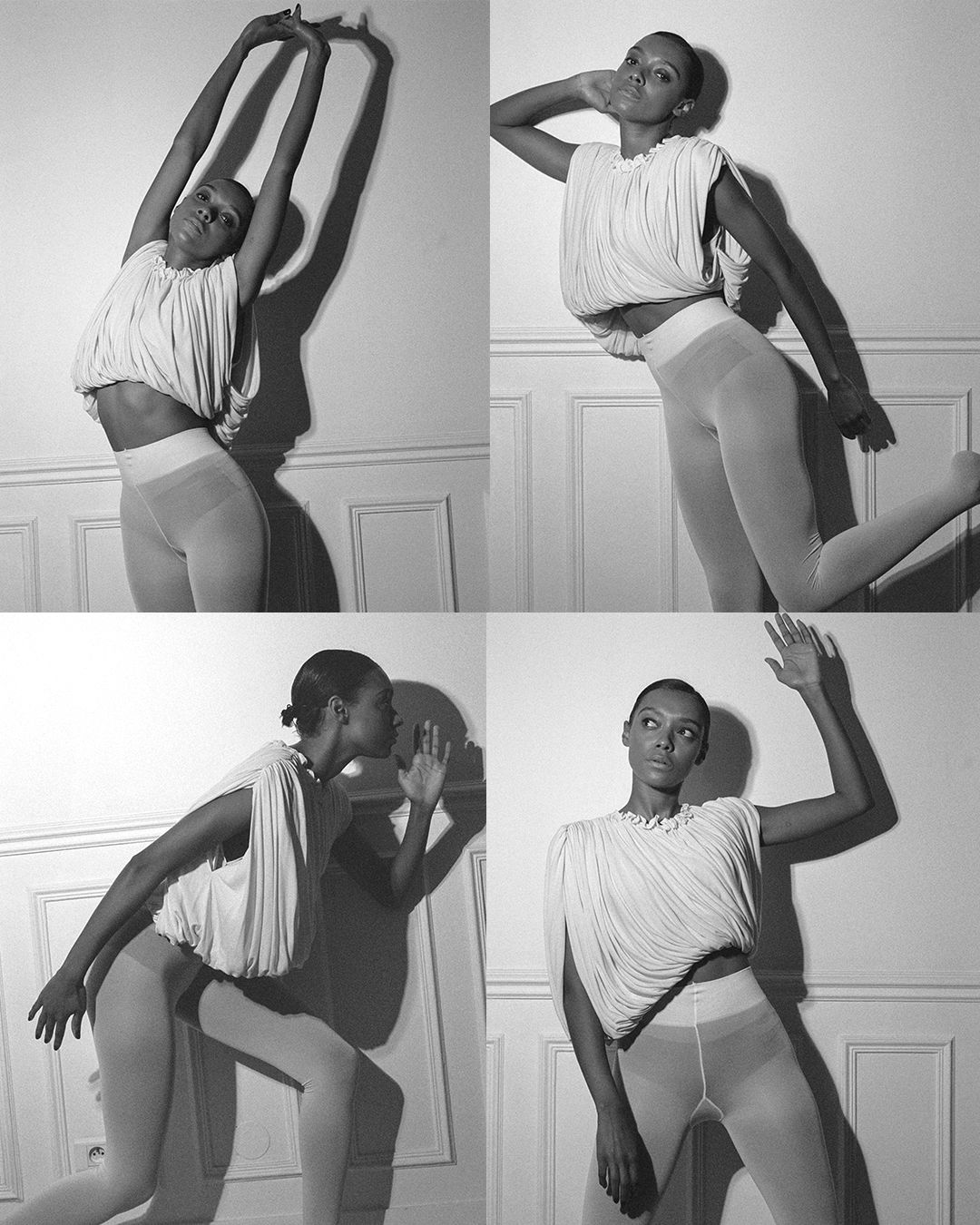
Actor Sophie Wilde’s star is on the rise. Here, she talks to her friend, the writer Oliver Mol, about inspiration, imposter syndrome and the art of breaking free from polite society.
Some actors spend years—decades—toiling away at their craft, perfecting it, only finding their ‘break’ later in life. Others seem to have come out of the womb fully formed: fearless, daring and brilliant from the moment they step in front of a camera. Sophie Wilde falls squarely into the latter category. Over the past two years, since graduating from prestigious acting school the National Institute of Dramatic Art (NIDA), she’s made a name for herself, beginning with the role of Ophelia in Bell Shakespeare’s lauded staging of Hamlet. Covid-19 got in the way and performances were cancelled a few weeks in, but Wilde was already off, shooting international TV and film productions, including a lead role in the buzzy psychological horror Talk to Me, which debuted at Sundance in January and was quickly snapped up for distribution by A24. This year you’ll see her in the much-hyped adaptation of Trent Dalton’s book Boy Swallows Universe, starring alongside Christoph Waltz and Sam Neill in The Portable Door, and in the lead role of Netflix’s The Fuck It Bucket, alongside Stephen Fry. Plus, she was recently invited to sit front row at Chanel’s Paris Fashion Week show. When we shoot Wilde, we’re catching her in the calm before serious, capital ‘S’, success. Here, Wilde digs into big breaks, inspirations and the art of acting with her friend, writer Oliver Mol.
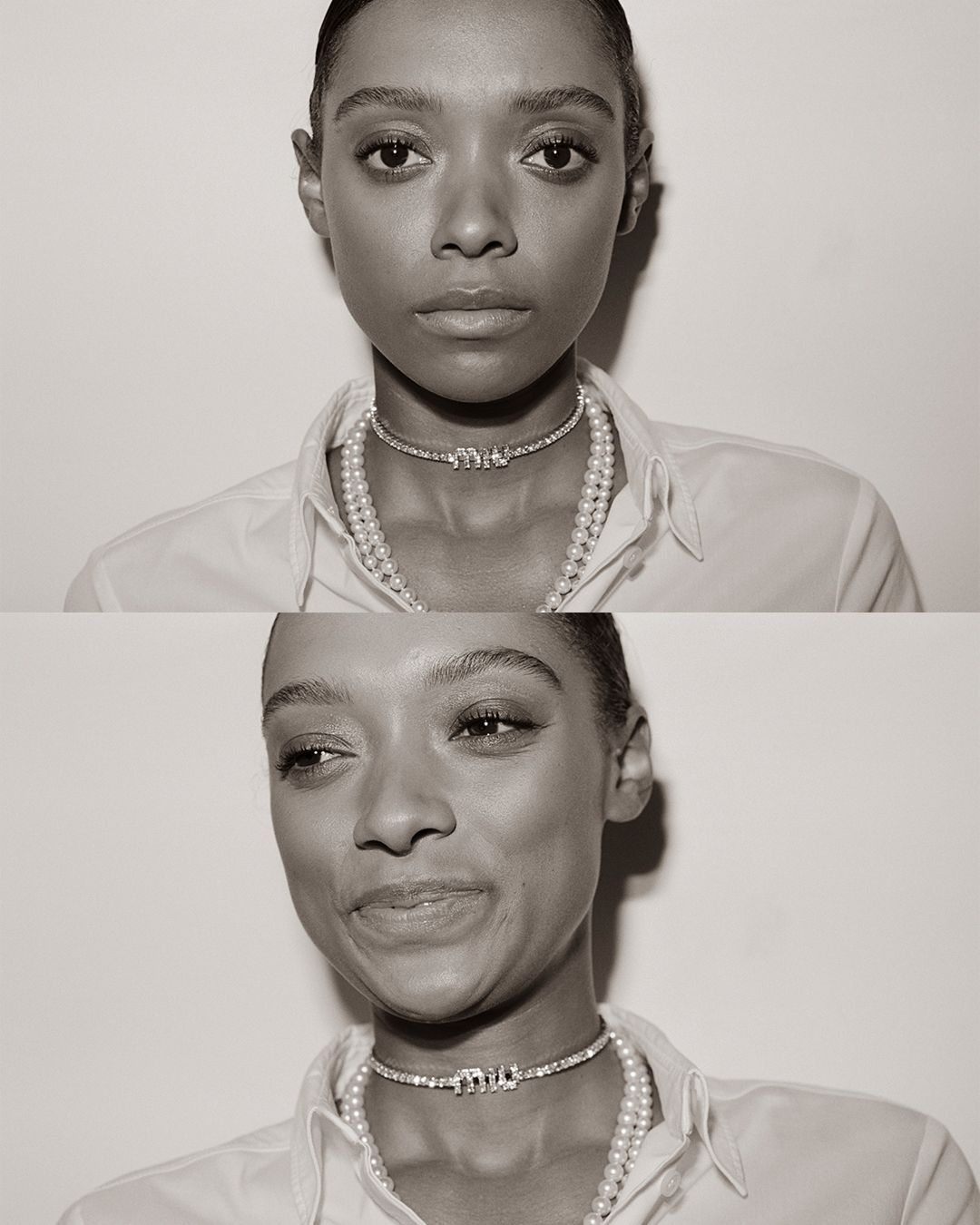
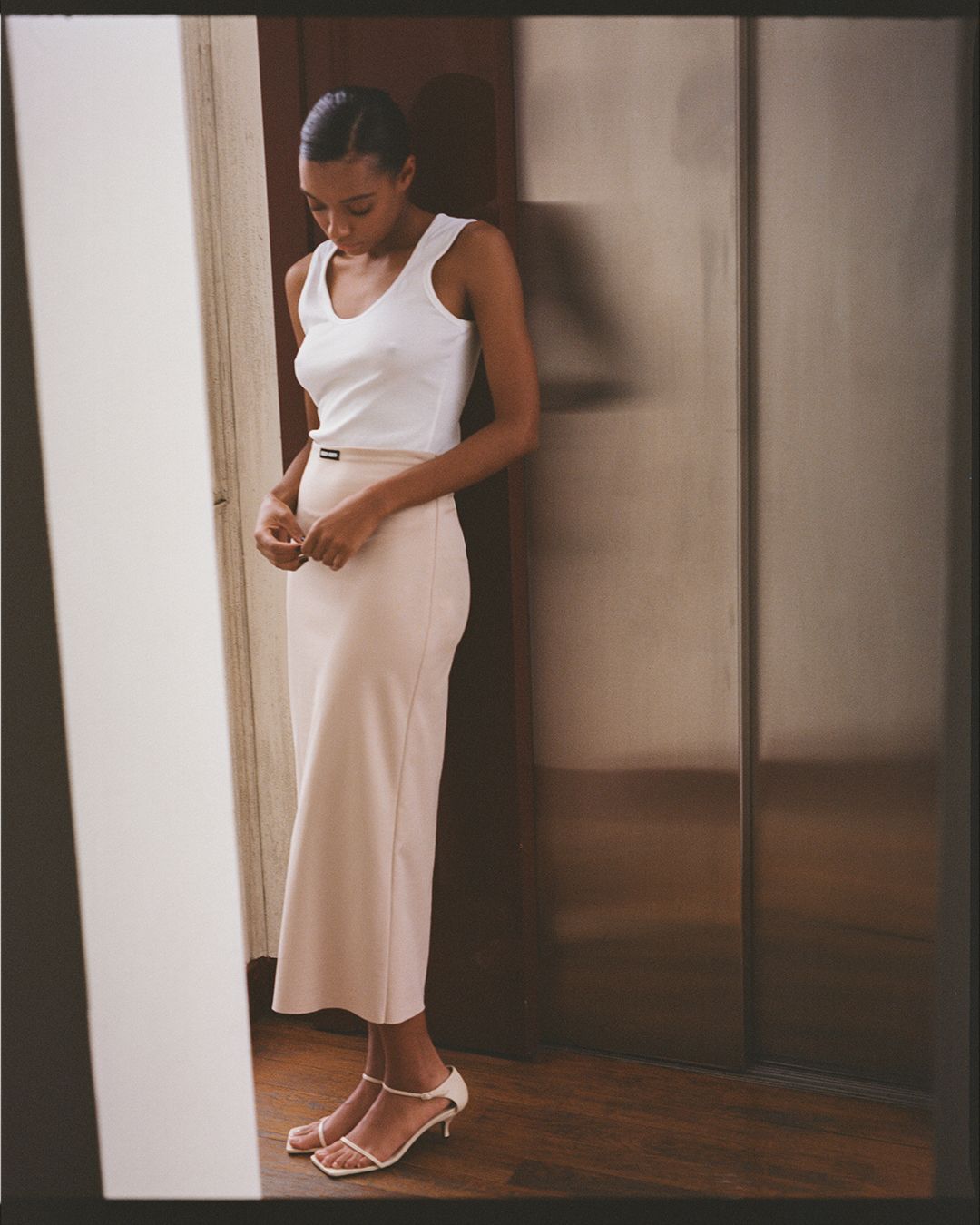
Miu Miu necklace; Arket top, Miu Miu skirt, Totême shoes
PF: We met many years ago at a party on Crown Street in Sydney. We ended up speaking about life and art and possibility, and you told me that you were an actor, and that you had grand plans for the future. I loved your passion, your drive, but what impressed me the most was your humility. Your life has changed profoundly since then. I know you’re travelling a lot, and you told me you’re living out of a suitcase. How are you feeling?
SW: Good! It’s been a full-on two years since finishing NIDA, and I really have been living out of a suitcase. I’ve had moments of intense loneliness, and moments of feeling really homesick and wanting stability in my life, but it’s a weird conflict because I’m doing the thing I have always wanted to do. Having said that ... I’m actually feeling really comfortable in myself, and I feel okay that I’m floating around. Obviously, it’s a wave. So much of this job is building intense and intimate relationships with people, but then the job ends and you have to do it all over again. Sometimes I just miss people who know me! You know, I just want to sit in a room and talk shit.
Of course!
It’s super jarring. I did Eden in Byron Bay, and that was really fun because it was my first television job and first time living away from home. But then the job I did after, in the UK, was during lockdown. I was in Birmingham during the winter and I was super isolated, which made the loneliness worse. Over the course of a year I probably did six quarantines, which is a ridiculous amount of time to spend alone. So it’s been a process of learning to live a life of solitude, and being okay with that.
How old were you when you decided to become an actor? And who were those first actors who inspired you, who made you feel that acting was possible?
I remember watching Roman Holiday when I was a kid, with Audrey Hepburn, and there’s the scene at the end where they just look at each other, and I was like, ‘I want to do that’. So I started taking NIDA acting classes at age five.
Woah.
It’s literally the earliest thing I can remember doing. So Audrey Hepburn was my idol, but a little while later I remember Viola Davis won her Emmy, and I watched her acceptance speech and I balled my eyes out. It was the first time I had seen a Black woman win something, and her speech was so powerful. I had had so many reservations, and I lacked self confidence which came, I think, from the lack of diversity [in the industry]. I kind of thought I couldn’t be an actor, or that it was never going to happen for me, so watching her win was a huge moment, and I thought, well, if she can do this maybe I can do this.
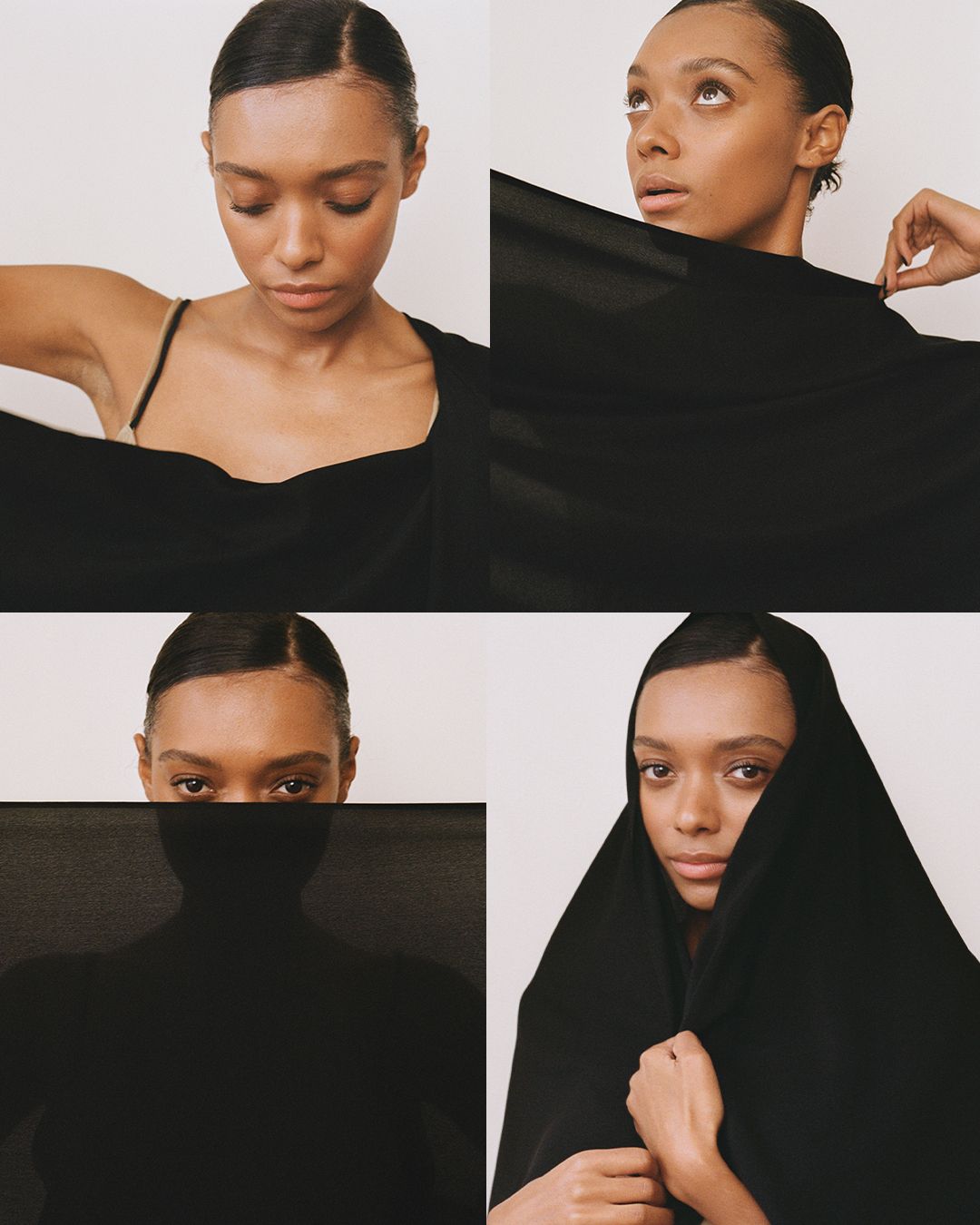
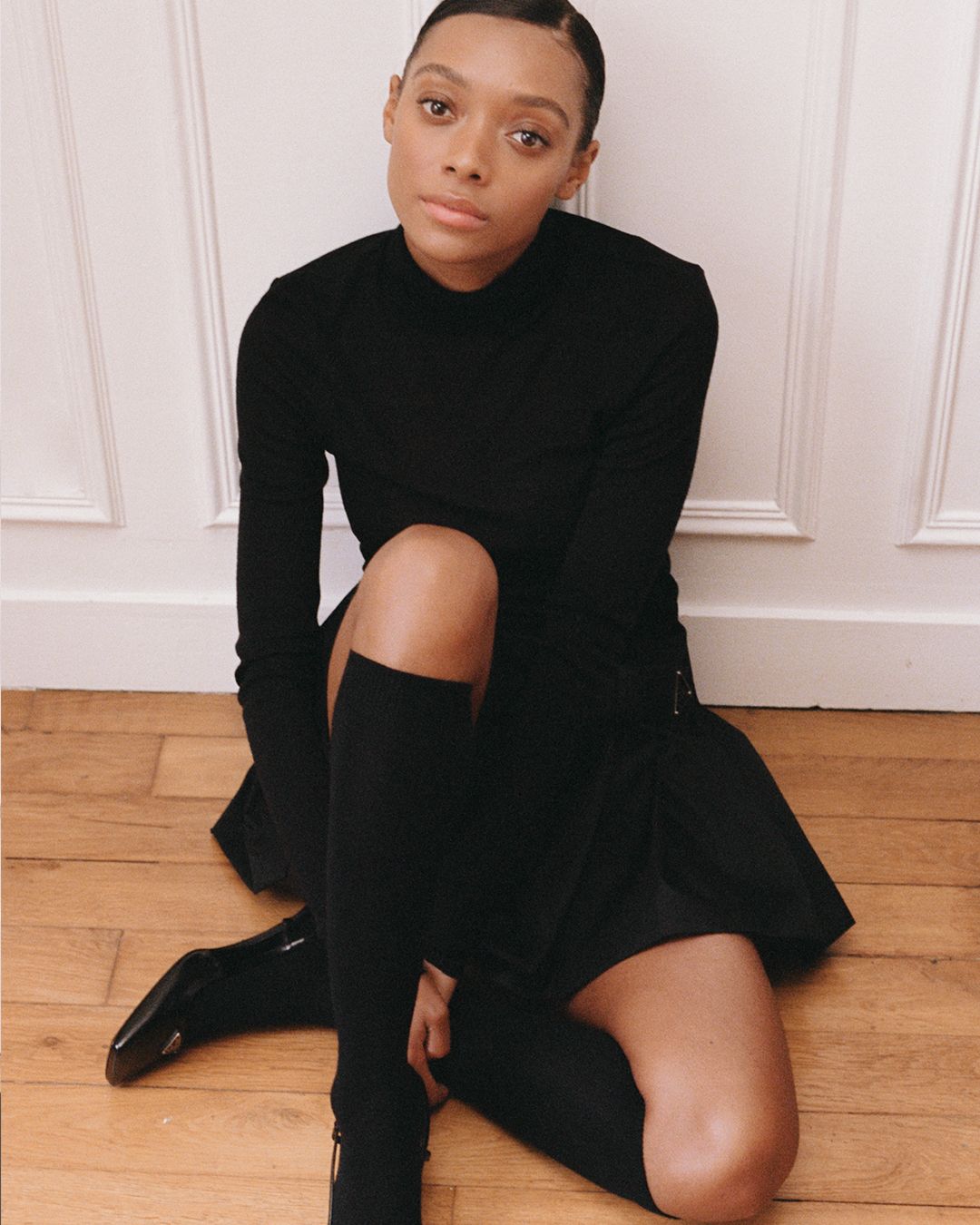
Cos turtleneck, Prada skirt and shoes, Falke knee socks
In your upcoming film The Portable Door you work with Christoph Waltz and Sam Neill. How was that experience?
I don’t think I have ever experienced such high levels of imposter syndrome. I mean look at that group of actors! And then there was just me, by far the most inexperienced and youngest. I remember walking to the production office on the first day and they had our head shots up with all the cast members, and I just looked at the cast and was like, ‘Fuck!’ The day before shooting I went to a sensory deprivation tank because I was really stressed. My beautiful co-star Patrick [Gibson] was such a sweetheart. One time he asked if I was spiralling and I was like, ‘Oh yeah’, and ... he sent me a list of Youtube videos of famous actors dealing with imposter syndrome. It was the most generous gesture ever, and I watched those and thought, ‘Maybe it’s okay’. It actually was the release I needed. That job was beautiful because we were really playing. I felt like a kid every day. And that’s rare. It’s a family film. There are goblins and magic. And you go into these incredible, giant sets, and there are all these practical effects. Also, it was a Jim Henson [Company] film, and you’re like, ‘Oh my God, I’m in a Jim Henson film!’ So, it was challenging, but it was the release I needed. Especially because the job before [it] was during lockdown, and it was really nice to come home [to Australia] and be with people.
How do you feel when someone is pointing the lens at you?
Usually when the director calls action, what I feel is terror. Immense amounts of anxiety. But not always. Sometimes it’s excitement. I can be so competitive. There are moments where I’m like, ‘I’m going to show you motherfuckers what I got!’ And in those moments it’s great. I guess when I feel like I am not hitting the mark, I just fake it till I make it. It’s so hard to actually know what you are doing a lot of the time, and there have been so many moments where I’m too in my head and I feel like it’s not working. But I’ve been lucky to have great relationships with my directors, so I have been able to voice my concerns. They have said, ‘No, this is actually great’, which proves a lot of the time you just get in your own way. But the other thing is that you can’t always be amazing. You can’t always live up to your expectations. You know there will be magic moments, but not every scene, every take. It’s about managing your expectations.
Absolutely.
I feel like the moments when I’m most in that flow state is when I am not thinking about it, and when I am actually in that scene listening to the other actor, because it’s really easy to not listen. I would say 80% of the time no one is listening to each other, and it’s those rare moments when you are listening and responding that it becomes organic and sparky and interesting and exciting, and you remember why you wanted to be an actor in the first place.
‘You don’t have to be part of the normal constraints of society. You don’t have to be polite.’
Did you surprise yourself?
Oh yeah. I hit myself so hard I went deaf in one ear for a second. That was scary. But it was an amazing scene in the film. And I’m not saying as an artist you have to go that hard, but I think it’s moments like that when you feel like you’re flowing. I feel that’s the appeal for a lot of people who want to be an actor, because you don’t have to be part of the normal constraints of society. You don’t have to be polite. You can be a [different] version of yourself.
The film you just mentioned, Talk to Me [which was picked up for distribution by A24 and will be released this July] looks absolutely terrifying.
The thing about horror films is that you’re in a perpetual state of horror. And to diverge for a second, I do think it’s interesting that horror films don’t get more recognition. Because some of greatest, most wide- ranging performances [are] horror performances. I think it was the first time I learned that just because you can intellectualise that something isn’t real, it doesn’t mean that your body can. Your body doesn’t always know that you’re acting. There are moments where the body goes into overdrive. There was this intense scene, that I’m not going to give away, where I had to run out of the room afterwards.
Would you ever not play a character because of the places it might take you?
No, I don’t think so. Actually, that’s kind of exciting to me. But it’s a legit thing to think about. You know, there are all these actors having meltdowns after jobs. It’s hard. But there’s also an onus on you to look after yourself in that process.
Do you remember all the characters you play? Do they stay with you?
I remember every character, even from high school, and I think they do leave a mark on you. I don’t think it’s possible for them not to leave a mark on you. Your body is the vessel for expression, and they stay with you.
Is that scary?
No—well, some more than others. I played Richard III at drama school, and weirdly that was one of the times when I felt like, ‘Ooo! Why are you still here, Richard?’ I make character playlists all the time. I just find it’s a really useful tool to get into a character, to use music to explore them. And you know how Apple Music has your most-played top 100 songs? I was listening to it, and one of the songs from Talk to Me came up and it was interesting how quickly everything clicked back to that Mia character. It was quite jarring.
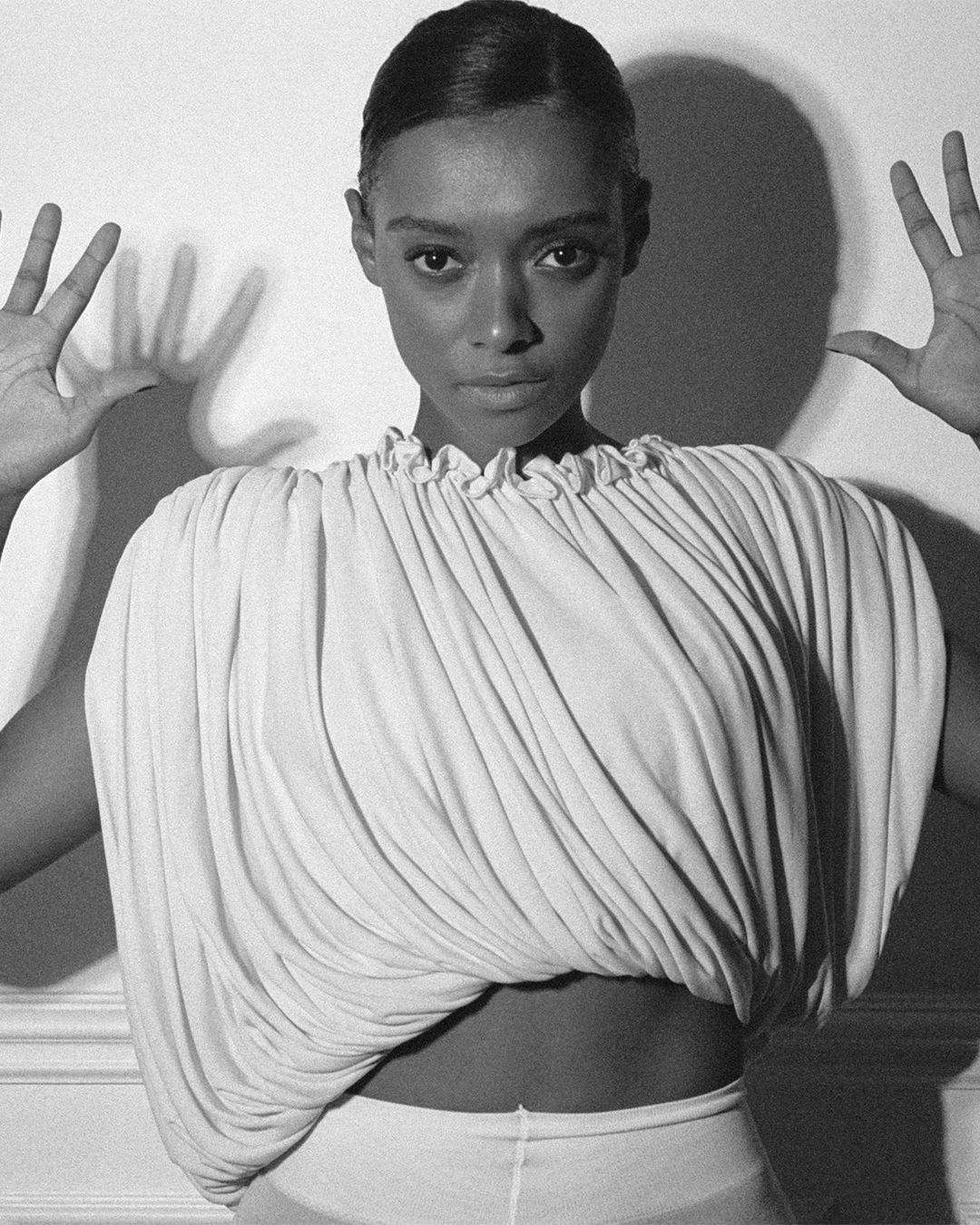
You have a new TV series coming out called The Fuck It Bucket, where you star alongside Stephen Fry! Highlights, what did you learn?
The highlights were working with incredible people. I love that cast and loved working with Ripley Parker, who wrote it. What was so cool about that job was that it was a Netflix show, and everyone was so young. It was made by a young person and had a young cast and young directors. It’s really rare to be given such a huge project at the start of your career, and it paid off because it’s a great show. But what did I learn? I think I learned about the responsibility of being the lead in a show, and setting the tone on set. I really felt like a mum because I was the oldest in the cast, and I felt like I was looking after everyone. At this point, I’ve actually worked quite a bit, and I have learned how to find my voice. When you’re at the start of your career, you don’t want to be a diva, or you don’t want to be perceived a certain way, but at a certain point you realise [your] voice is important.
Lastly, I wanted to know about your relationship to success. How have you been dealing with everything?
I don’t know! It’s weird. There’s a [disconnect] in my mind where I am kicking goals, and have been achieving a lot of things, but at the same time it doesn’t really feel like I have. Maybe it’s because the projects haven’t come out yet. I did have a moment at Sundance where I was like, ‘Woah, what is going on!’ That experience was very overwhelming. Also, when A24 bought Talk to Me—I have a list of my biggest dreams and that was at the top of my list. So to have your biggest dream come true is so surreal. I don’t think I have processed it. I remember when Danny told me we both just burst into tears. But I’m just doing my job. I don’t really think there’s anything to stay grounded about. I'm just being me.
